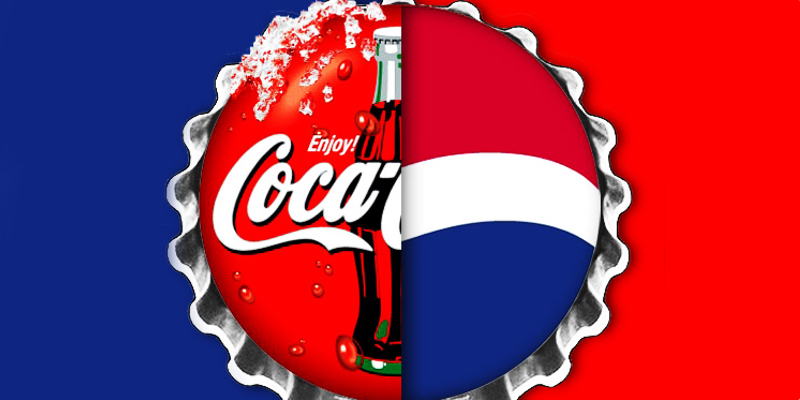Professor McClure from the DNL (decision neurosciences lab) in the department of psychology at Arizona State University and his co-workers have decided to study on Coca-Cola (Coke) and Pepsi, because consumers were having strong preferences over one another, although their formulas are almost the same. With this, came the question of how cultural messages affect our opinions enough to change behavioral preferences about something as simple as a sugary drink.
In order to answer this question researchers have served the participants Coke and Pepsi (1) anonymously and (2) revealing their brands in both behavioral tasting tests and during fMRI scans. Pr. McClure and his co-workers have noted that a constant neural response is observed in the subjects’ ventromedial prefrontal cortex when the drinks are served anonymously; and that when participants knew what they were drinking, it hugely affected their brain activity, as well as their behavioral preferences.
Brain scans reveal that the choice of Coke or Pepsi does not solely depend on their taste but also their labels, since this information activates cerebral areas related to cultural influences. Therefore, the researchers believe that they have proved neurologically, how brands influence behavioral preferences when they have cultural reflections.
The reason for this, according to the researchers, is that “there are visual images and marketing messages that have insinuated themselves into the nervous systems of humans that consume the drinks” (Pr. McClure et al., 2004).
Thanks to its design, the study allowed the researchers to see clearly which cerebral areas are activated when the brand information is available, and when it is not. They have also witnessed that while knowing that the drink is Pepsi does not change anything, the case with Coke is different. When participants are told that the brand is Coca-Cola that affected their preference and also activated their “dorsolateral prefrontal cortex” and hippocampus, both of which are known to change the individual’s behaviors depending on emotions. This led the researchers to think that hippocampus might be responsible for recalling that cultural influences affecting preferences (Pr. McClure et al., 2004).
They also believe that the results of the study imply that there are two interacting brain systems in the prefrontal cortex; one for taste and one for recalling cultural influence, and this interaction is what determines the individual’s preferences.

Refernce: McClure SM, Li J, Tomlin D, Cypert KS, Montague LM, Montague PR (2004). Neural correlates of behavioral preference for culturally familiar drinks. Neuron. 14;44(2):379-87.

